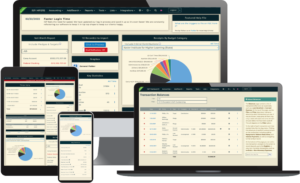When filing compliance reports, it’s good to have a basic understanding of what they are and why you would need to file a report. This will be the best first step into seeing what goes into the process as you prepare to file your report.
First and foremost, please be sure you familiarize yourself with your filing agency’s rules. While there are plenty of instances we can and will help, there will be times where we are unable to help. Knowing when reports need to be filed based on certain activity, for example, will help prevent issues later on. Whether you’re a federal or state filer, we have help files for each state that will direct you to the agency’s site where you can find both rules and deadlines.
The report you file and when you file it will depend on several factors.
- Agency: The filing agency you are filing with is important. These can range from local to city to state to federal filing agencies.
- Committee Type: The report you file can vary depending on the type of committee. For example, candidate committees will file different reports than PACs.
- Activity: As mentioned in the Committee Type portion, different committee types will file different reports. This is because the type of activity that occurs within the committees, which will in turn trigger a specific report. For example, some agencies require a report if a large donation is received within a close timeframe leading up to an election. If you have AI turned on in your database, AI will alert you of the report’s due date if a report is triggered based on specific activity like this.
There are also different types of reports, typically falling into these categories.
- Organizational: If you are a new committee or an existing committee with a change to basic committee info, like an address, you would file a report that is more organizational in intent.
- Periodic: These reports are according to a set period of time and cover all transactions within that period. Periods can either be based on Elections or by calendar dates. These dates and filing calendars can be found on your agency’s website. You can subscribe to the Calendar feed in ISP to track report due dates.
Based on agency limitations, ISP supports both types of reports. However, some filing agencies do not allow for reports to be filed through a third party vendor.






